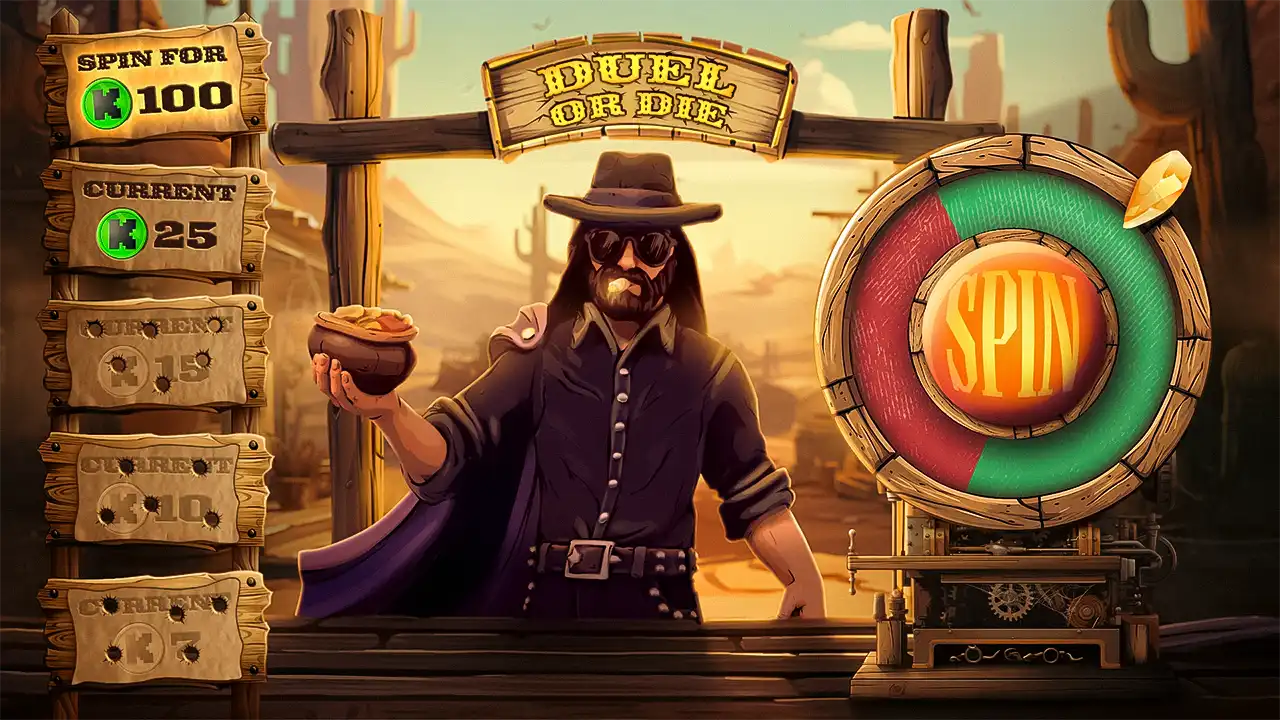
Detailed Guide Through The History of Online Slots
05 Mar 2024
- 🎰 Discover how the $4 billion slot industry came to be
- 📜 Follow the development of slots and regulations over the past 100+ years
- 💡 Learn more about what makes the world of slots tick
It would be an understatement to claim that slots are the most popular online casino game - slot games aren’t just the most popular casino games, they are more popular than any other form of gambling by a country mile. So, let’s go through their meteoric rise, from the first slot machine launched in the 19th century until today.
Throughout the history of online and video slots, their popularity has only grown, with projections claiming that the slot market will be worth more than $4 billion by 2028, nearly doubling the evaluation from 2022. Sounds unreal, doesn’t it? Well, when you take into account that, in every nook and cranny of the globe, from New York to New Delhi, from Cape Town to Reykjavik, the reels are always rolling and the slot world never sleeps, it’s not hard to see how this simple yet extremely engaging game grew to have such a prominent role in the gambling world.
Now, where do video slots and slot machines draw their roots from and who were the brilliant minds behind this fantastic creation?
The Origin Story of The First Slot Machine
Slot machines are much older than you’d assume - Sittman and Pitt were the creators of the original slots, having patented the first early slot machines all the way back in 1891. These geniuses behind the affectionately known “one-armed bandits” made out like bandits themselves, seeing as their 5 drum, 50 card, poker-adjacent creation caught on like wildfire.

Bars all over New York and the wider area had lines upon lines of people waiting patiently for their turn on the first slot machines. And that was only the start as the popularity of slots has skyrocketed since.
Commercializing The First Slot Machines - Reels Start Paying!
The first slot machine, although wildly popular, had no direct payout mechanism, which is where Charles Fey comes into the story. While the original Sittman-Pitt machine depended on each and every establishment for providing the payouts, Mr. Fey simplified the process by implementing a 3-reel, 5-symbol mechanism, getting rid of the cards and drums and reducing the complexity of the reading wins and creating the first de-facto automatic payout system and launching slots into the stratosphere.
The so-called Liberty Bell machine (so named due to one of the symbols being the Liberty Bell itself) was quickly copied by other manufacturers, with the first mechanical machines officially branded “Liberty Bell” being manufactured in 1907 by Herbert Mills. By 1908, these marvels of technology were literally everywhere, from shops and pubs all the way to barbers and even brothels!
Slots Advancements in The 20th Century
The next significant step in the evolution of slot machines and the gambling industry came in 1963, when Bally developed the first electromechanical slot machine. The game was called “Money Honey”, and was the first slot with the capacity to pay out as much as 500 coins, with help from a machine attendant. With this step in the evolution process, one-armed bandits soon became obsolete, and a new era of electronic games was born.
First Video Slot Machines Rise in California

California was the promised land when it comes to slot evolution, so it’s no shock that the first video slot machine was created in Kearny Mesa, California, in 1976. A modified TV color receiver and logic boards were housed in show-ready cabinets, and spread like wildfire down the Vegas strip and then the world.
Microprocessor - Powered Slots Take The Stage
In the vibrant landscape of the 1980s UK gambling industry, a new era dawned with the proliferation of microprocessor-powered machines. These marvels of technology incorporated ingenious mechanisms to ensure compliance with all gambling laws and regulations while keeping players enthralled with casino games.
As coins clinked into the machines, they embarked on a fascinating journey, either directly into the owner's cashbox or into a trey earmarked for payouts. Behind the scenes, a vigilant microprocessor kept watch over the coins, meticulously tracking their accumulation in the payout trey.
The heart of the operation lay in the intricate machine's drums - propelled by stepper motors under the firm command of the processor and proximity sensors standing guard, their keen eyes fixed on the precise positions of the drums as they spun.
Finally, nestled within the machine's digital brain was a treasure trove - a ‘look-up table’ containing the secrets of symbol combinations, a roadmap for the processor to decipher the whims of fate displayed to the eager gambler. This symbiotic dance of sensors, motors, and
software granted the system remarkable powers, not least of which was the ability to manipulate the odds with surgical precision.
If the payout reservoir brimmed with coins, the machine bestowed generosity upon its players, enticing them with the promise of riches. Conversely, when the reservoir ran dry, the machine tightened its grip on the odds, tempting fate with a more frugal hand.
How Did Slot Developers Combat Cheating?
The biggest issue when it came to older versions of slot games was cheating. The only ones working as hard or harder than the people making slot machines are those looking to cheat them. The ingenuity of these fraudsters was almost impressive, with quite a few original methods for cheating and defrauding gambling establishments born in this era.
One popular early method of cheating slot machines was using light to befuddle the optical sensors during payouts. Another was spinning short coins with plastic wire, which would cause the machine to not only accept the coin and give the fraudster playing credits, but would also return the coin to them due to the plastic wire causing it to exit into the payout tray instead of the rejection tray.

The answer to this issue was creating advanced anti-cheating methodologies, which modern slots have plenty of. EPROM chips in particular were a big step in slot security, seeing as they allow for firmware integrity, tamper detection, and encryption and authentication, making each slot machine equipped with one an impregnable fortress for those looking to cheat the system.
Slot Game Legislation & Regulation in The USA and Globally
Throughout the history of slot machines, there were many hurdles that needed to be cleared in order to get slots to where they are today. As is often the case with revolutionary inventions, governments around the globe were distrustful of slot machines, with 19th and early 20th century machines being located almost exclusively in illegal gambling dens and speakeasies.
Once the Prohibition Era came to an end, however, there was a renewed focus on regulating various forms of gambling, including slot machines. Many states began legalizing and regulating gambling activities, albeit with strict oversight and licensing requirements.
With legalization came a slot-game craze, with many bars, casinos and other establishments installing the machines and reaping the rewards of their popularity. The slot machine industry was booming, but trouble was on the horizon.
Effects of Online Casinos & Slots on Players
However, the mid-20th century saw concerns about gambling addiction grow massively, along with concerns about corruption. Tighter regulations were implemented, and gaming commissions were created in many states to ensure compliance with all these new laws and regulations.
The only people exempt from following U.S. law were the Native American tribes which have full autonomy on their reservations, which led to a boom in unregulated casinos and gambling dens. This, unfortunately, led to a disproportionately high level of gambling addiction on the reserves, which is still a major issue in the Native American community even today.

As mankind neared the turn of the millennium, though, both tribal and commercial gambling establishments were subjected to a patchwork of state and federal regulations pertaining to slot machines, somewhat regulating the gambling landscape on tribal lands and fully doing so in areas where the U.S. government had full control over the slot machine industry.
Online Slots in The Digital Era
With the approach of the Digital Era, online casinos and gambling became the new Wild West in terms of regulation, but regulators were quick to adapt existing laws to the digital realm. With the advent of the ‘Global Village’, it was more important than ever to create global, all-encompassing legislation and regulations, and commissions from around the world have come together to set common standards and best practices that take into account technological developments. The regulatory bodies set Responsible Gaming guidelines in order to prevent the spread of gambling addiction and to help those suffering from it.
With organizations such as the American Gaming Association, UK Gambling Commission, Malta Gaming Authority, Cyprus Gaming Commission, and many others ensuring that legislation and regulations are adhered to, gamblers have never been able to play and win more safely than they can today.
Online Slots Today: What is The State of The Slot Industry?
As mentioned above, the world has truly grown into a Global Village and slots have spread to every corner of the globe. Gone are the days where the U.S. held the lion’s share of both gambling production and gambling activity. Asia, in particular, has exploded into the most profitable gambling market on planet Earth, with Macau being the Las Vegas of the Far East, and that’s without even getting into the online sphere.
While slot machines in land-based casinos are as popular as ever, online slots are where the real money is at. The number of online slot providers has blossomed into the thousands, and the games themselves are becoming more varied, whether due to cultural influences or the advancement of technology which is allowing developers to infuse titles with new and revolutionary features. Additionally, with the advent of casino streaming, players can now watch and play online slots along with their favorite influential streamers from the casino industry (and even global superstars like, for example, Drake, a huge fan of slots and streams regularly).
Players can now find a slot for every taste palette, every budget, and every playstyle. From simple fruit slots to video-game like titles with endless bonus features, it’s all gone online, and the industry hasn’t shown any signs of slowing down anytime soon.
What Does The Future Hold For Slots & Slot Fans?
Having gone through slots history, their development over the past 100+ years, and the accompanying regulatory affairs, it’s time to turn to the future of online slot machines.
So, what is the future when it comes to slots?
Well, with the almost exponential growth the gambling industry and slot games are experiencing, it’s hard to see slots going away anytime soon. In fact, with the development of revolutionary technologies such as VR and AR, slots' immersiveness will only grow, bringing in a whole new-gen gambling audience ready to spin the reels and feel the thrill.




